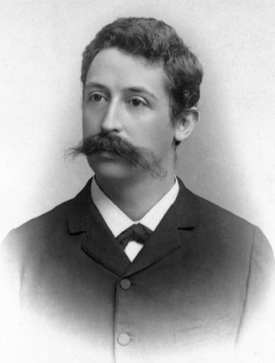![]()
Christiaan Eijkman carried out what historian Kenneth Carpenter called “probably the most important work for the future of nutritional science to have been conducted anywhere in the world in the 1890s.” The Dutch physician stationed in Java was assigned the task of investigating the cause of beriberi and the best method of controlling it.
Eijkman developed the first animal model of a vitamin deficiency disease by meticulously feeding various forms of milled and unmilled rice to chickens to induce a disease resembling beriberi. He thought the disease was caused by toxic starch. Others later determined that milled rice lacked an essential factor for life, which others even later identified as thiamine or vitamin B-1. Nevertheless, Eijkman was awarded a Nobel Prize in 1929 for discovering B-1.
References:
